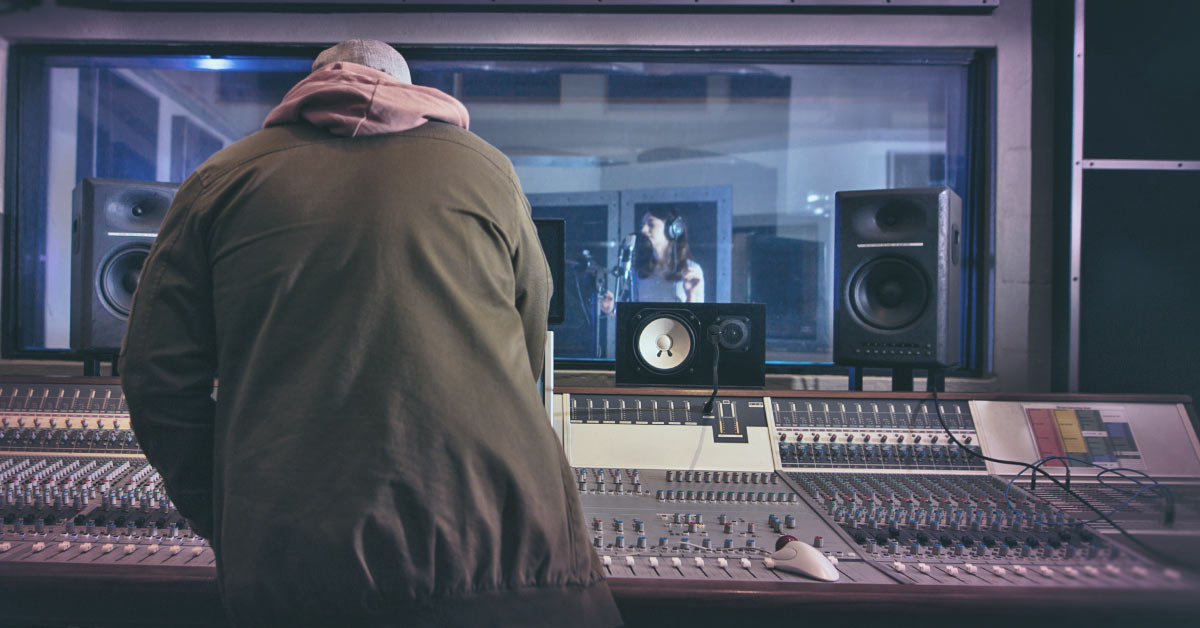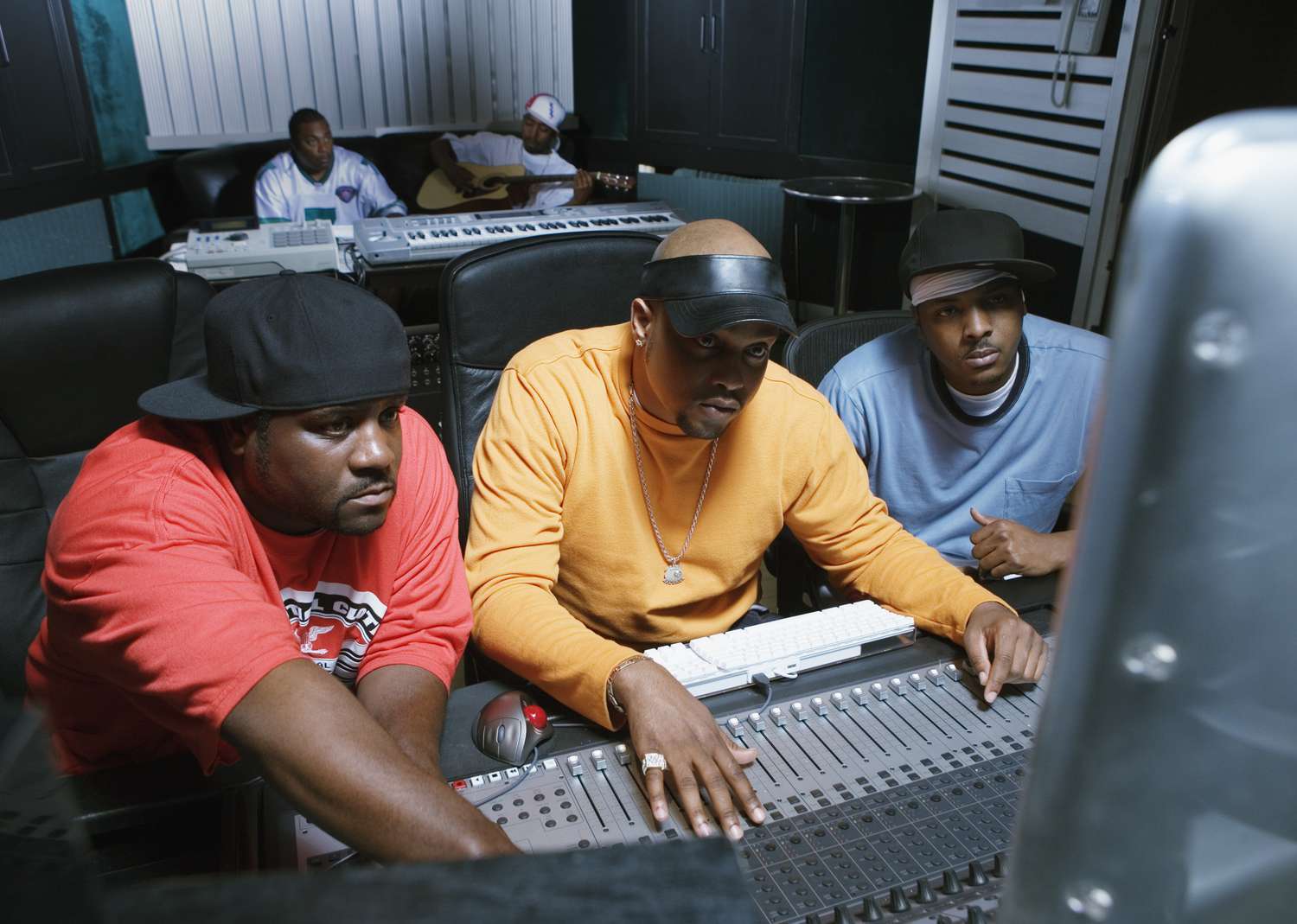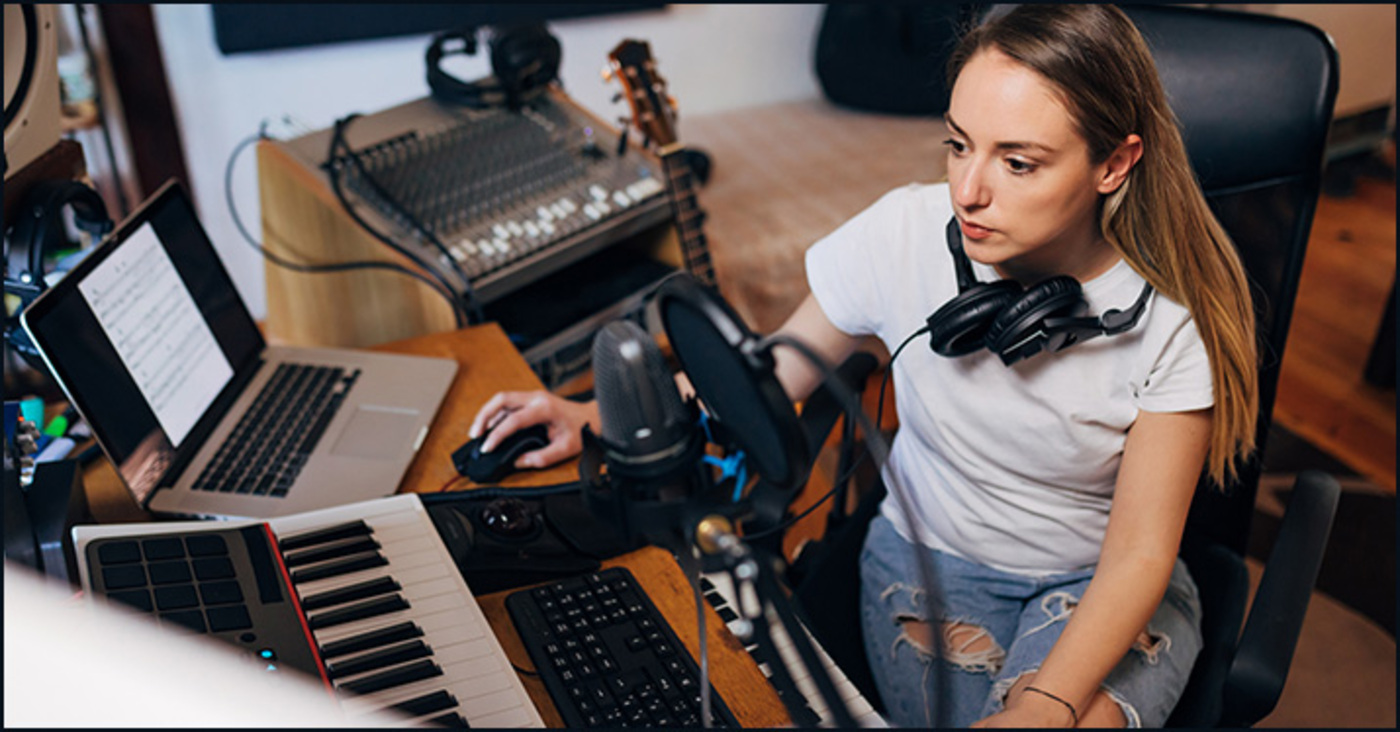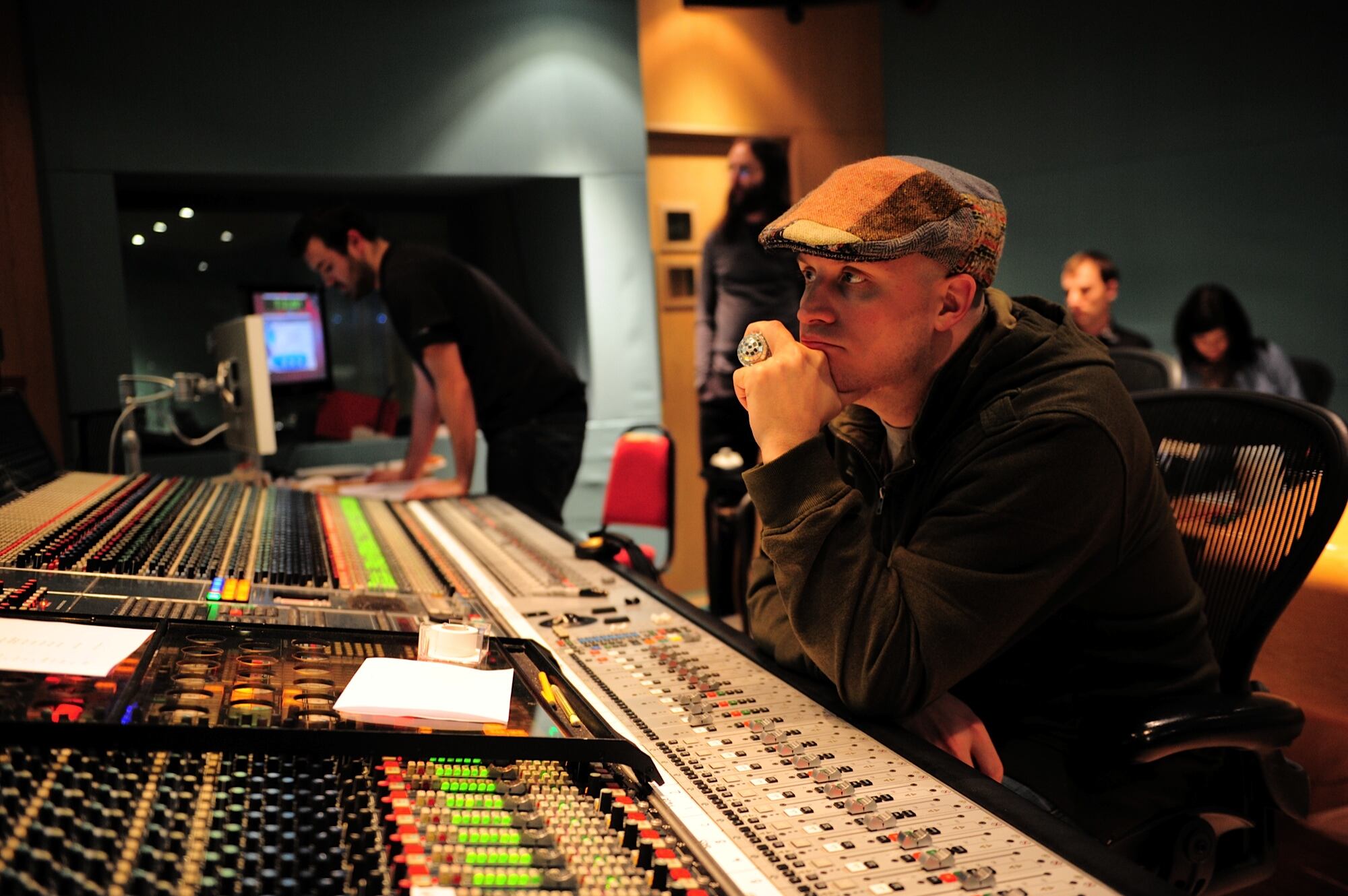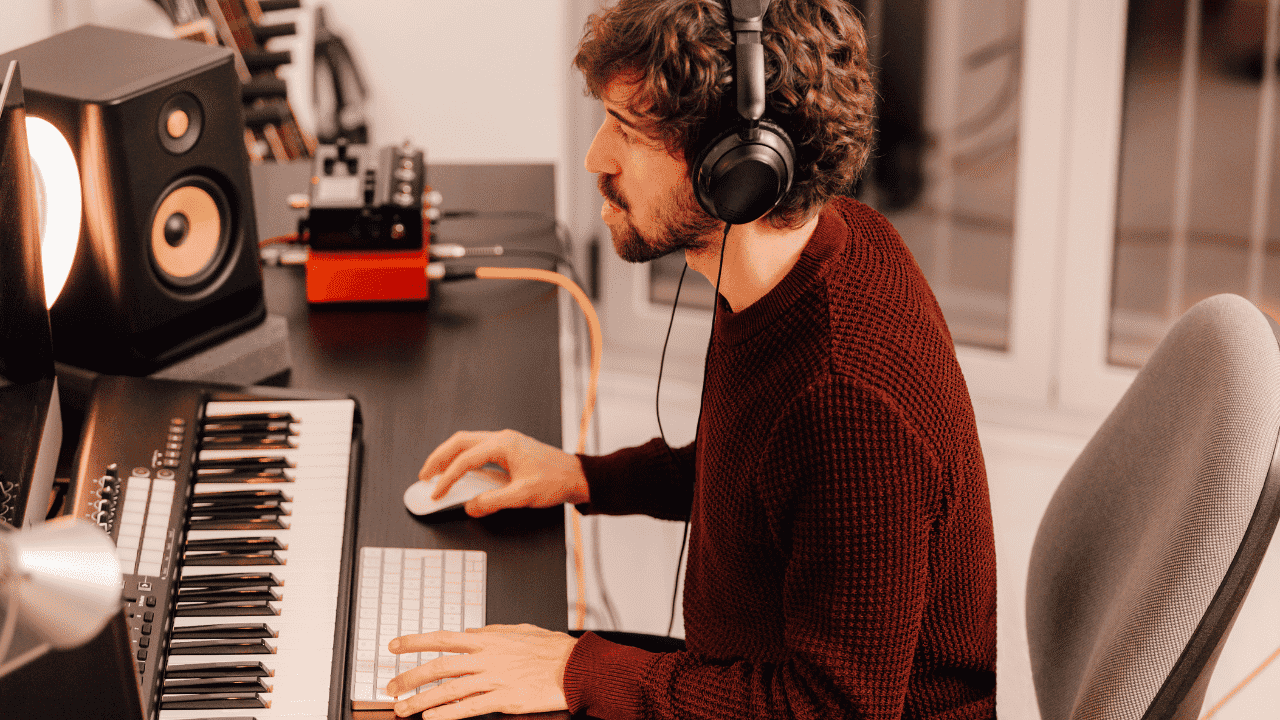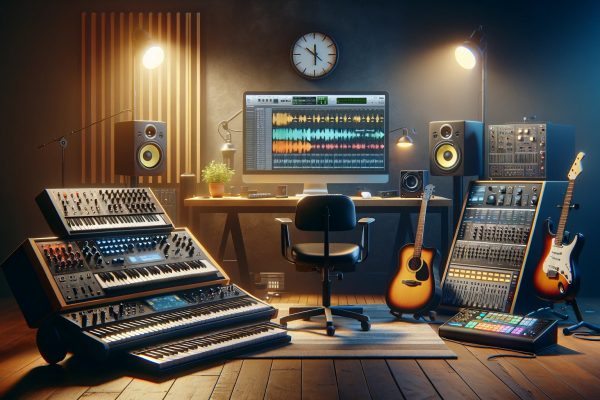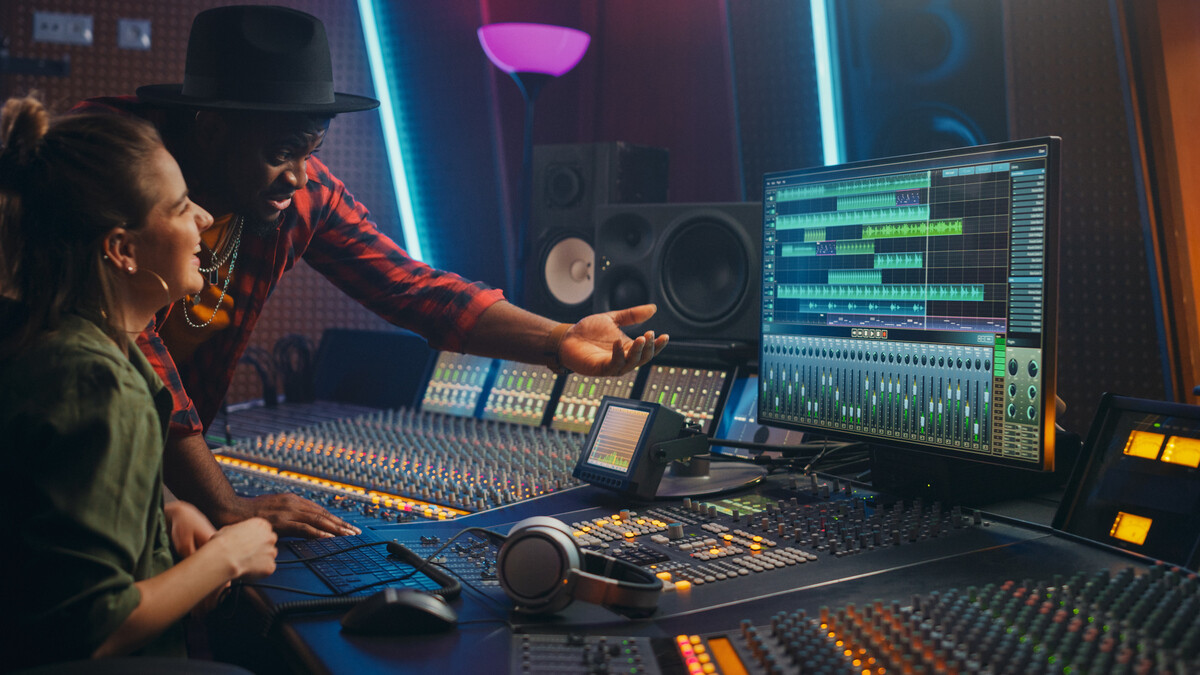Home>Production & Technology>Producer>What Is The Job Role Of A Music Producer?
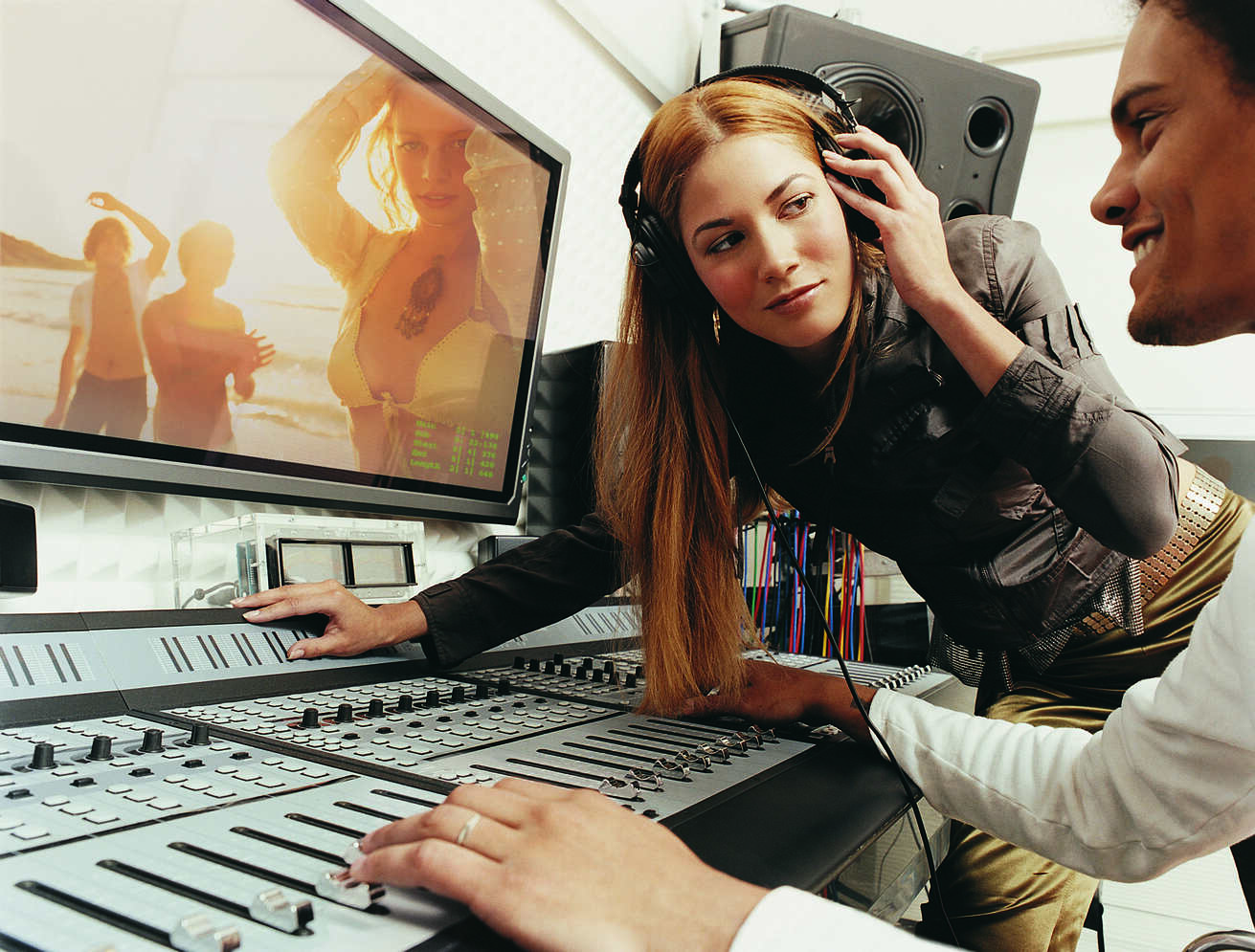

Producer
What Is The Job Role Of A Music Producer?
Published: March 6, 2024
Discover the key responsibilities and skills required for a career as a music producer. Learn how producers contribute to the creation of exceptional music. Become a successful producer with the right knowledge and expertise.
(Many of the links in this article redirect to a specific reviewed product. Your purchase of these products through affiliate links helps to generate commission for AudioLover.com, at no extra cost. Learn more)
Table of Contents
Introduction
The role of a music producer is often shrouded in mystery, with many people unsure of what exactly this multifaceted profession entails. Music producers are the masterminds behind the scenes, the creative visionaries who bring an artist's sonic dreams to life. Their influence permeates every aspect of a song, from the initial concept to the final mix, and their impact on the music industry is immeasurable.
In the ever-evolving landscape of the music industry, the job of a music producer has become increasingly diverse and complex. With the advent of digital technology and the proliferation of home recording studios, the role of the producer has expanded to encompass a wide array of responsibilities. Today, a music producer is not only a sound engineer but also a mentor, a collaborator, and a creative force.
Music producers are tasked with overseeing the entire production process, from pre-production planning to the final mastering of a track. They work closely with artists to shape their sound, offering invaluable guidance and support while ensuring that the artistic vision is realized. A producer's role is not limited to technical expertise; it also involves providing emotional and creative support to the artists, helping them to unlock their full potential and achieve their artistic goals.
In essence, a music producer is a jack-of-all-trades, seamlessly blending technical prowess with artistic sensibility. They are responsible for creating the sonic landscape that forms the backdrop of a song, making crucial decisions about instrumentation, arrangement, and overall sound. Their ability to understand and interpret the artist's vision is paramount, as they strive to translate raw creativity into a polished, professional product.
The job of a music producer is not for the faint of heart; it requires a unique blend of technical skill, creative intuition, and unwavering dedication. It is a role that demands adaptability, resilience, and a deep passion for music. As the music industry continues to evolve, the role of the music producer will undoubtedly evolve as well, shaping the soundscape of the future and leaving an indelible mark on the world of music.
Music Producer Responsibilities
-
Pre-Production Planning: A music producer's responsibilities often begin with pre-production planning, where they collaborate with artists to conceptualize the direction of a project. This involves discussing musical styles, arrangements, and instrumentation, as well as selecting suitable recording studios and session musicians.
-
Overseeing Recording Sessions: During recording sessions, the producer takes on the role of a conductor, ensuring that the creative vision is being realized. They work closely with the artists and session musicians to capture the best performances, offering guidance on vocal delivery, instrumental nuances, and overall sound quality.
-
Arrangement and Composition: Music producers play a pivotal role in shaping the arrangement and composition of a song. They make critical decisions about song structure, instrument selection, and overall sonic texture, utilizing their musical expertise to enhance the song's emotive impact.
-
Sound Engineering and Mixing: A producer's technical proficiency is crucial in the sound engineering and mixing process. They oversee the recording and editing of tracks, utilizing their knowledge of audio equipment and software to achieve the desired sonic quality. Additionally, they meticulously mix the individual tracks to create a cohesive and balanced final product.
-
Post-Production and Mastering: Post-production involves refining the recorded tracks, adding any necessary overdubs, and preparing the songs for the mastering stage. The mastering process, which involves fine-tuning the overall sound and preparing the tracks for distribution, is also overseen by the music producer.
-
Mentorship and Guidance: Beyond the technical aspects, music producers often provide mentorship and guidance to artists. They offer constructive feedback, help artists refine their performances, and provide emotional support throughout the creative process.
-
Budgeting and Scheduling: Music producers are often responsible for managing the budget and schedule of a project. This involves coordinating studio time, hiring session musicians, and overseeing the logistics of the recording process while staying within the allocated budget.
-
Networking and Collaboration: Producers often engage in networking and collaboration to expand their creative network. They may liaise with industry professionals, such as record label executives and music publishers, to create opportunities for the artists they work with.
-
Staying Abreast of Industry Trends: To excel in their role, music producers must stay informed about the latest industry trends, technological advancements, and emerging musical styles. This enables them to adapt their approach and offer innovative solutions to artists.
In summary, the responsibilities of a music producer are multifaceted and dynamic, requiring a blend of technical expertise, creative vision, and interpersonal skills. Their influence extends far beyond the recording studio, shaping the artistic trajectory of the artists they collaborate with and leaving an enduring imprint on the music they help create.
Skills and Qualifications
Becoming a successful music producer requires a unique blend of skills, qualifications, and personal attributes that enable individuals to navigate the multifaceted demands of the role. While there is no singular path to becoming a music producer, a combination of technical expertise, creative acumen, and industry knowledge is essential for excelling in this dynamic profession.
Technical Proficiency
A strong foundation in music theory, composition, and arrangement is fundamental for a music producer. A deep understanding of musical concepts, such as harmony, rhythm, and melody, allows producers to make informed decisions about song structure, instrumentation, and sonic texture. Proficiency in playing musical instruments, particularly piano and guitar, provides producers with a practical understanding of musical composition and aids in effectively communicating musical ideas to artists and session musicians.
Furthermore, expertise in sound engineering and digital audio workstations (DAWs) is indispensable for music producers. Proficiency in recording, editing, and mixing audio tracks using industry-standard software, such as Pro Tools, Logic Pro, or Ableton Live, enables producers to achieve the desired sonic quality and manipulate sound effectively. Additionally, knowledge of studio equipment, microphone placement techniques, and signal processing enhances a producer's ability to capture and shape sound during recording sessions.
Creative Vision
A music producer's creative vision is a defining factor in their ability to shape the artistic trajectory of a project. The capacity to conceptualize musical arrangements, envision sonic landscapes, and offer innovative solutions to artists is integral to the role. Producers must possess a discerning ear, an intuitive understanding of musical trends, and the ability to push creative boundaries while respecting the artist's vision. The capacity to think outside the box, experiment with unconventional sonic elements, and infuse a unique artistic identity into a project sets exceptional producers apart in the industry.
Interpersonal and Communication Skills
Effective communication and interpersonal skills are paramount for music producers, as they collaborate closely with artists, session musicians, and industry professionals. The ability to articulate musical ideas, provide constructive feedback, and cultivate a collaborative environment is crucial for fostering a productive and creative studio atmosphere. Additionally, strong leadership skills, adaptability, and the capacity to inspire and motivate artists are essential for guiding a project from inception to completion.
Industry Knowledge and Networking
Staying abreast of industry trends, emerging technologies, and evolving musical styles is imperative for music producers. A keen awareness of the current music landscape, knowledge of music business practices, and an understanding of copyright and intellectual property rights equip producers with the tools to navigate the industry effectively. Furthermore, the ability to network, build professional relationships, and create opportunities for artists is an invaluable asset in the competitive music industry.
Educational Background
While formal education is not a prerequisite for becoming a music producer, a degree or certification in music production, audio engineering, or a related field can provide a solid foundation for aspiring producers. Additionally, hands-on experience through internships, apprenticeships, or working in recording studios is instrumental in honing the practical skills and industry knowledge required for success in the field.
In essence, the role of a music producer demands a diverse skill set, a passion for music, and a commitment to continuous learning and growth. By combining technical proficiency, creative vision, interpersonal skills, and industry knowledge, individuals can embark on a fulfilling and impactful career as a music producer.
Working Environment
The working environment of a music producer is as diverse as the projects they undertake, encompassing a range of dynamic settings that shape the creative process. While the traditional image of a recording studio often comes to mind, the reality is that music producers operate in a variety of spaces, each with its own unique ambiance and workflow.
Recording Studios: The quintessential working environment for music producers is the recording studio, where the magic of music creation unfolds. These state-of-the-art facilities are equipped with cutting-edge recording equipment, acoustically treated rooms, and a myriad of instruments, providing an optimal space for capturing and shaping sound. The studio environment offers producers the tools and resources to bring their creative visions to life, allowing for precise control over the recording process.
Home Studios: With the advancement of digital technology, many music producers have embraced the flexibility and convenience of home recording studios. These personalized spaces are equipped with professional-grade recording equipment, digital audio workstations, and soundproofing solutions, enabling producers to work remotely and collaborate with artists from around the world. Home studios offer a more intimate and relaxed setting, allowing for greater creative experimentation and artistic exploration.
Live Venues: Beyond the confines of the studio, music producers often find themselves immersed in the vibrant energy of live venues. Whether overseeing sound reinforcement for a concert or capturing live recordings, producers navigate the fast-paced and exhilarating atmosphere of live performances. The dynamic nature of live venues presents producers with the challenge of capturing the essence of a live musical experience while maintaining sonic clarity and balance.
Remote Collaboration: In an increasingly interconnected world, music producers frequently engage in remote collaboration, working with artists and musicians across geographical boundaries. Virtual collaboration platforms, such as cloud-based file sharing and real-time communication tools, enable producers to collaborate seamlessly with artists, songwriters, and session musicians from diverse locations. This virtual working environment empowers producers to transcend physical limitations and cultivate global creative partnerships.
Creative Spaces: Music production often extends beyond traditional recording environments, with producers seeking inspiration in unconventional creative spaces. Whether it's a secluded cabin in the woods, a bustling urban rooftop, or a makeshift studio in a converted warehouse, these non-traditional settings provide a fertile ground for artistic exploration. Producers harness the unique ambiance of these spaces to infuse their projects with distinct sonic textures and creative ingenuity.
In essence, the working environment of a music producer is a fluid and adaptable landscape, characterized by a blend of traditional and innovative spaces. Whether within the confines of a professional recording studio, the comfort of a home setup, the energy of live venues, or the boundless realm of remote collaboration, producers navigate diverse environments to realize their artistic visions and shape the sonic tapestry of the music they create.
Collaboration with Artists
Collaboration lies at the heart of a music producer's role, forming the cornerstone of the creative process. The relationship between a producer and an artist is characterized by a dynamic interplay of ideas, emotions, and musical visions, culminating in the realization of sonic masterpieces. The collaborative journey often begins with an open exchange of concepts, as the producer and artist engage in deep conversations to unearth the core essence of the project. This initial phase serves as a fertile ground for the cultivation of trust, respect, and a shared commitment to artistic excellence.
As the collaboration progresses, the producer assumes the role of a mentor, guiding the artist through the intricate terrain of musical expression. They provide constructive feedback, offer fresh perspectives, and encourage the artist to push creative boundaries, nurturing an environment where artistic experimentation thrives. The producer's ability to discern the nuances of the artist's vision, to comprehend their aspirations, and to translate these into tangible sonic expressions is pivotal in fostering a harmonious and productive collaboration.
The collaborative process extends beyond the confines of the recording studio, encompassing every facet of the project. Whether selecting the perfect instrumentation, refining vocal performances, or fine-tuning sonic textures, the producer and artist work in tandem to sculpt the musical landscape. This collaborative synergy is built on a foundation of mutual respect, effective communication, and a shared passion for creating music that resonates with audiences on a profound level.
Moreover, the producer's role as a collaborator extends to facilitating a supportive and nurturing environment for the artist. They serve as a pillar of encouragement, empowering the artist to embrace vulnerability, explore uncharted creative territories, and unleash their full artistic potential. This mentorship dynamic fosters an atmosphere of trust and creative freedom, allowing the artist to flourish and evolve within the collaborative partnership.
Furthermore, the collaborative journey often extends beyond the confines of a single project, evolving into a long-term creative partnership. The producer's ability to forge deep, enduring connections with artists, to understand their artistic evolution, and to adapt to their changing creative needs is instrumental in cultivating sustained collaborative relationships that yield timeless musical works.
In essence, the collaboration between a music producer and an artist is a profound and transformative journey, characterized by a harmonious fusion of artistic visions, unwavering dedication, and a shared commitment to musical excellence. It is within this collaborative crucible that timeless musical legacies are born, leaving an indelible imprint on the tapestry of the music industry.
Conclusion
In conclusion, the role of a music producer transcends the confines of a job description; it embodies a profound artistic calling, a relentless pursuit of sonic innovation, and a commitment to nurturing the creative spirit. The multifaceted responsibilities of a music producer, from pre-production planning to post-production mastery, underscore the pivotal role they play in shaping the sonic landscape of the music industry.
The collaborative nature of the producer's role, characterized by a harmonious interplay with artists, underscores the profound impact of their mentorship, guidance, and creative vision on the trajectory of musical projects. The ability to cultivate an environment where artistic experimentation thrives, where vulnerability is embraced, and where the essence of an artist's vision is translated into tangible sonic expressions, is a testament to the transformative power of collaboration.
Furthermore, the dynamic working environments in which music producers operate, from traditional recording studios to the boundless realm of remote collaboration, underscore the adaptability and ingenuity inherent in their craft. Their capacity to navigate diverse creative spaces, harness unconventional settings for artistic inspiration, and transcend geographical boundaries through virtual collaboration speaks to the ever-evolving nature of their profession.
The skills and qualifications required for success as a music producer, encompassing technical proficiency, creative acumen, interpersonal skills, and industry knowledge, underscore the diverse and multidimensional skill set that defines the profession. The fusion of technical expertise with artistic intuition, the ability to communicate musical ideas effectively, and the commitment to continuous learning and growth form the bedrock of a successful music producer's career.
As the music industry continues to evolve, the role of the music producer remains a linchpin in the creation of timeless musical works. Their unwavering dedication, their capacity to adapt to technological advancements, and their ability to inspire and elevate the artistic endeavors of others position them as indispensable architects of the sonic landscape.
In essence, the job role of a music producer is not merely a profession; it is a vocation that demands a profound love for music, an unwavering commitment to artistic excellence, and a relentless pursuit of sonic innovation. It is a role that leaves an indelible mark on the musical tapestry of the world, shaping the soundscape of the present and inspiring the creative endeavors of the future.

